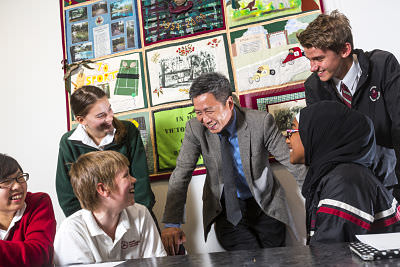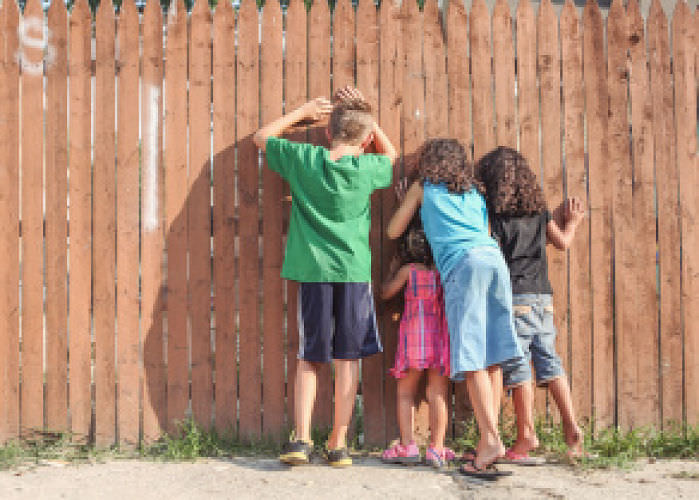In the athlete’s village at the Rio 2016 Olympics was a personalised banner visible to all. In 2015, athletes from across Australia pursuing a spot on the team had been invited to write a message to their future self.
Among the hundreds I read, 100 metres freestyler Cameron McEvoy’s was simple: “Stay Curious”.
These words have always mattered, but they matter even more now.
Why curiosity is imperative.
Curiosity is at the heart of all learning write Guy Claxton and Bill Lucas. It’s the forerunner of creativity. In turn, creativity can lead to better creative thinking to generate fresh ideas, problem solving and opportunities for new and diverse social connections.
Curiosity is a habit of mind that most nations want from their citizens. This is not new. ‘So what’, you might say?
Staying curious is a precious, but ‘unpriced’ resource. This can make it vulnerable. If you don’t cultivate, value and use it, you lose it.
In this globalised world, entrepreneurial-minded innovators and skilled citizens aren’t just a ‘nice to have’, their presence is essential for national growth. A wave of reports makes this clear.
Employers demand a new set of highly transferable enterprising skills, such as critical thinking, born out of curiosity. This is at the heart of serial entrepreneur and learner Elon Musk’s success: learning transfer. It’s also where the promise of agency shifts from aspiration to reality.
If you think our youth are just ‘adults in waiting’, think again.
Young people have access to more information than we ever had as children, YouTube, Facebook or Google ‘it’. So holding on to old ways of ‘preparing’ them for life not only holds them back, it also holds us back as a nation. We can’t be competitive in this hyper-connected world without engaging with youth.
The lack of youth agency must change, states the United Nations 2016 World Youth Report. Societies need to engage young people as active contributors to social change, not merely as ‘adults in waiting’. When this happens in schooling, students take responsibility for their learning; the roles of teacher and learner change. The social enterprise in schools work of the Australian Centre for Rural Entrepreneurship illustrates this new wave of school and community relationships.
But as we know, change won’t happen or last without a nudge or, for some, a big push or pull into the future. We need to flood the system with leaders who understand what it takes to adapt.
To adapt is to be future focused. Act for tomorrow, today.
A good read on this topic is What Matters Now by Gary Hamel. It focuses on five key issues:
- Values – we need a ‘moral renaissance’, where better principles not better practices are the ‘hero piece’;
- Innovation – a ‘buzzword’ yes, but also an output of staying curious, leading to opportunities for new solutions to create new value;
- Passion – we need to discover new ways to rouse the human spirit; apathy and insipidness are the enemies of passion;
- Ideology – better principles, giving people more freedom and more self-determination;
- Adaptability – the forces of inertia must be vanquished. Critical are: anticipation, learning ‘from the fringe’; intellectual flexibility, ‘looking afresh’, investing in diversity; fostering variety to build a portfolio of options; “build a magnet for great ideas” through ‘hackathons’, ‘teachmeets’, ‘innovationlabs’ ‘#lists’ and other online gatherings; create a challenge that’s worth changing for.
Each of these ‘big five’ is connected. Together, they offer a framework for change, whether in business, health or education.
It’s not bad education, it’s just outdated for the times.
Talking directly, candidly and in confidence with children and young people is a joy. Recently, a Year 9 student, Lucy (a pseudonym), told me she didn’t want to have to be at school. She wanted to want to be at school. And there lies the rub. Such a simple and insightful distinction, but it’s a comment about value.
Providing an engaging education needs to have currency for the times. The fiscal and social costs from missing out on an education are significant and long lasting, according to the latest Mitchell Institute national research report. Thousands of young people are affected.
In a collaborative podcast, Education Re-Imagined, ten year old Felipe Bautista personifies a new breed of learners dissatisfied with the ‘same same’ schooling experience:
“We have a right to learning made for us. Every school has a choice. Stay the same as all the other schools or rise up above them. All schools need to change.”
This is what international scholar, Professor Yong Zhao, argues will distinguish the ‘same same’ from ‘World Class Learners’. It’s not that students are getting a bad education, it’s just wrong for the times.
Yong offers a focus on student’s interests and strengths, tapping into their curiosity. This orients the purpose of learning and learning ‘products’ towards the creation of new entrepreneurial skills and habits. A shifting student-teacher dynamic sees students as creators and contributors rather than passive recipients. It’s what schools from Western Sydney and rural and metro Victoria have embraced, joining a growing movement: ‘The Paradigm Shifters: Entrepreneurial learning in schools’ initiative. This led to a showcase in May hosted by the Origin Foundation, highlighting student agency, as illustrated in Rooty Hill High School’s video. Mitchell Institute have now released the findings from this award winning initiative.

Yong Zhao with entrepreneurial learning students at Ringwood Secondary College. Image courtesy of Mitchell Institute at Victoria University.
Are we supporting the hunger for change?
If education is the vision for what our children need to learn, and if our schools are educating workers not thinkers, then says Sir Ken Robinson, cultivating creativity, not killing it, “is one of the most interesting challenges for any teacher” (p.8). By association then, the squeeze is on to stay curious.
This was a salient lesson offered by one of Australia’s top tech entrepreneurs and recent Internet ‘Hall of Fame’ inductee, Bevan Slattery.
In his keynote to the 150 plus students, teachers and principals at the Paradigm Shifter’s Forum, Bevan said:
#5 ‘Make a difference’: “To be successful in life you don’t have to change the world, you just have to change someone’s world.” And Bevan’s number one lesson? #1Curiosity – be hungry for change. Today’s education, worth having tomorrow depends on us.


